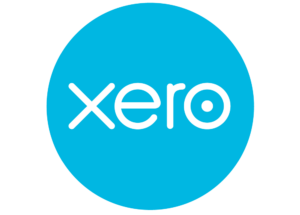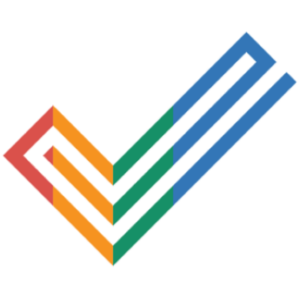Top 10 Accounting Software Redefining Finance in 2025
Introduction
In 2025, efficient accounting practices are more critical than ever. Businesses of all sizes rely on robust accounting software to manage finances, track expenses, generate reports, and ensure compliance. This article explores the top 10 accounting software solutions shaping the future of finance in 2025, empowering businesses to make informed decisions and maintain financial health.
Criteria for Selecting Leading Accounting Software
Choosing the right accounting software requires careful evaluation. Key criteria include:
- Core Accounting Features: Functionality for managing accounts payable/receivable, general ledger, bank reconciliation, and financial reporting.
- Automation Capabilities: Tools for automating tasks like invoicing, expense tracking, and bank feeds.
- Integrations: Seamless integration with other business applications, such as CRM, e-commerce, and payroll platforms.
- Reporting & Analytics: Robust reporting features for generating financial statements, analyzing performance, and forecasting.
- Scalability & Security: Ability to scale with business growth and robust security measures to protect financial data.
- User-Friendliness: Intuitive interface and ease of use for non-accountants.
- Cost-Effectiveness: ROI and affordability, considering subscription models and features.
Top 10 Accounting Software in 2025
Here are the top 10 accounting software solutions impacting businesses:
 Xero
Xero
- Best Features: Cloud-based accounting, bank reconciliation, invoicing, expense tracking, reporting.
- Limitations: Can be more expensive than some other options, limited inventory management capabilities.
- Cost: Subscription-based pricing, various plans for different business sizes.
Reviews: Highly regarded for its user-friendly interface and cloud-based accessibility, making it popular with small businesses.
 QuickBooks Online
QuickBooks Online
- Best Features: Cloud-based accounting, invoicing, expense tracking, bank feeds, reporting, payroll integration.
- Limitations: Can be complex for some users, customer support can be inconsistent.
- Cost: Subscription-based pricing, various plans for different business needs.
Reviews: A popular choice for small businesses due to its comprehensive features and integrations, though some find it challenging to navigate.
 Sage Intacct
Sage Intacct
- Best Features: Cloud-based accounting, core financials, advanced reporting, automation, integrations.
- Limitations: Designed for larger businesses, can be expensive for small businesses.
- Cost: Subscription-based pricing, typically higher than solutions for smaller businesses.
Reviews: Favored by growing businesses and enterprises for its robust financial management capabilities and advanced reporting.
 FreshBooks
FreshBooks
- Best Features: Invoicing, expense tracking, time tracking, project management, reporting.
- Limitations: Limited core accounting features compared to some other options, best suited for service-based businesses.
- Cost: Subscription-based pricing, various plans for different business sizes.
Reviews: Popular with freelancers and service-based businesses for its ease of use and focus on invoicing and expense management.
 Zoho Books
Zoho Books
- Best Features: Invoicing, expense tracking, bank reconciliation, inventory management, reporting, integrations.
- Limitations: Can be less intuitive than some other options, customer support can be inconsistent.
- Cost: Free plan available for very small businesses, paid plans for growing businesses.
Reviews: A good option for small businesses looking for a balance of features and affordability, offering a comprehensive set of accounting tools.
 Wave Accounting
Wave Accounting
- Best Features: Free accounting software, invoicing, expense tracking, basic reporting.
- Limitations: Limited features compared to paid options, not suitable for larger or more complex businesses.
- Cost: Free.
Reviews: A popular choice for very small businesses and freelancers due to its free access, though its limited features restrict its use for growing businesses.
 AccountEdge Pro
AccountEdge Pro
- Best Features: Desktop accounting software, invoicing, expense tracking, inventory management, payroll.
- Limitations: Not cloud-based, limited integrations compared to cloud solutions.
- Cost: One-time purchase.
Reviews: A good option for businesses that prefer desktop accounting software and need strong inventory management capabilities.
 Kashoo
Kashoo
- Best Features: Cloud-based accounting, invoicing, expense tracking, reporting.
- Limitations: Limited features compared to some other options, best suited for very small businesses.
- Cost: Subscription-based pricing.
Reviews: A simple and affordable option for very small businesses looking for basic accounting functionality.
 Bill.com
Bill.com
- Best Features: Accounts payable automation, bill payment, vendor management, integrations.
- Limitations: Primarily focused on AP automation, may require additional accounting software.
- Cost: Subscription-based pricing.
Reviews: Streamlines accounts payable processes for businesses of all sizes, saving time and improving efficiency.
 Hubdoc
Hubdoc
- Best Features: Document capture and organization, automated data extraction, integrations.
- Limitations: Primarily focused on document management, requires separate accounting software.
- Cost: Subscription-based pricing.
Reviews: Automates the tedious task of organizing and entering receipts and bills, improving accuracy and saving time.
Integration and Implementation Strategies
Successful accounting software implementation requires:
- Needs Assessment: Define your accounting needs, budget, and required features.
- Software Selection: Research and compare different options, consider free trials.
- Data Migration: Plan and execute data migration from your previous system.
- Training & Support: Train your team on how to use the new software effectively.
Challenges and Considerations
- Data Security: Protect sensitive financial data and ensure compliance with regulations.
- Integration with Other Systems: Seamless integration is crucial for efficient workflows.
- Change Management: Address employee concerns and provide adequate training.
Future Outlook
Accounting software will continue to evolve with advancements in AI, automation, and cloud computing. Expect more intelligent features, real-time insights, and seamless integration with other business applications. AI-powered tools will likely play a larger role in automating bookkeeping tasks, as mentioned in the linked articles.
Conclusion
Effective accounting practices are essential for financial health and business success. Choosing the right accounting software, implementing it effectively, and providing ongoing support are crucial for maximizing its impact. By leveraging these tools, organizations can improve financial management, make informed decisions, and achieve their business objectives.





